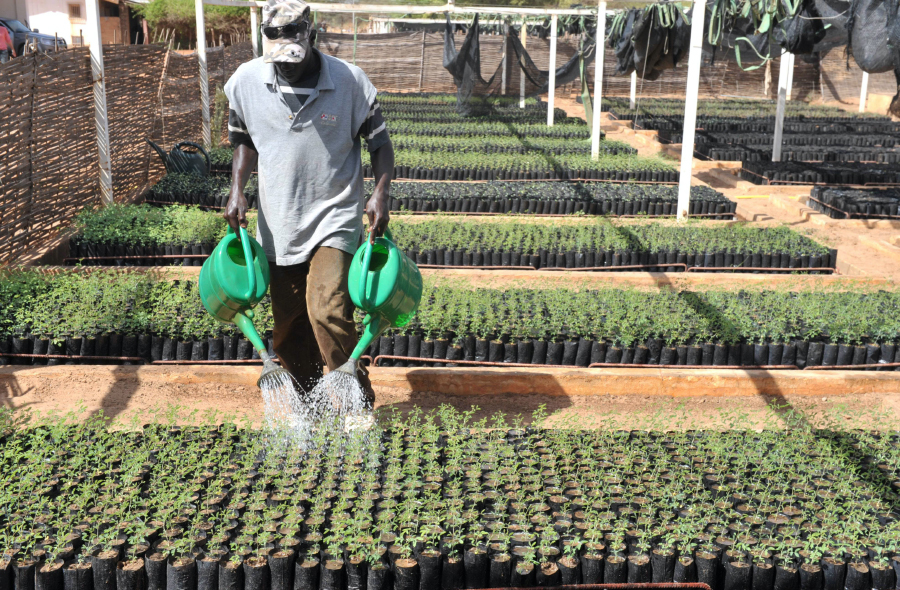FAO-GCF strengthening Gum arabic value chains to promote dryland restoration in Sudan

Gum arabic brings local communities of smallholder farmers in Kordofan, Sudan, up to 38% of their annual income. They share the gum belt landscape with mobile pastoralist communities who move their animals North in the rainy season, and back South afterwards to find pasture and water.
Gum trees significantly boost crop yields and reduce household vulnerability to climate change stresses, yielding gum even in drought years. The trees enhance soil fertility, improve water infiltration and lower evaporation by reducing wind speed – thereby improving the efficiency of water and fertilizer use. They also store carbon, thus contributing to greenhouse gas emissions reductions.
But many smallholders receive low prices for their gum. An AFD-funded pilot project trained producer groups to produce clean, dry gum and facilitating lucrative sales contracts with gum exporters paying them twice the going price.
To scale up this project, the Sudan Forest National Corporation (FNC) and FAO developed a new project proposal, Gums for Adaptation and Mitigation in Sudan (GAMS), in collaboration with gum exporters and a microfinance bank. The Green Climate Fund (GCF) has just approved a USD 10 million grant for this project, which leverages USD 14.7 million in private sector financing.
Alberta Mascaretti, Service Chief for Sub-Saharan Africa Service, FAO Investment Centre said:
"While working closely with Sudanese experts, FAO Investment specialists - from a variety of backgrounds, including climate change, economics, forestry and gender - were able to put together a very convincing case for the Green Climate Fund. It is the first FAO project proposal to GCF that has leveraged considerable private sector investment."
The combination of capacity building of smallholder producer groups and private sector investment in partnerships with these groups improves the chances of long-term sustainability.
